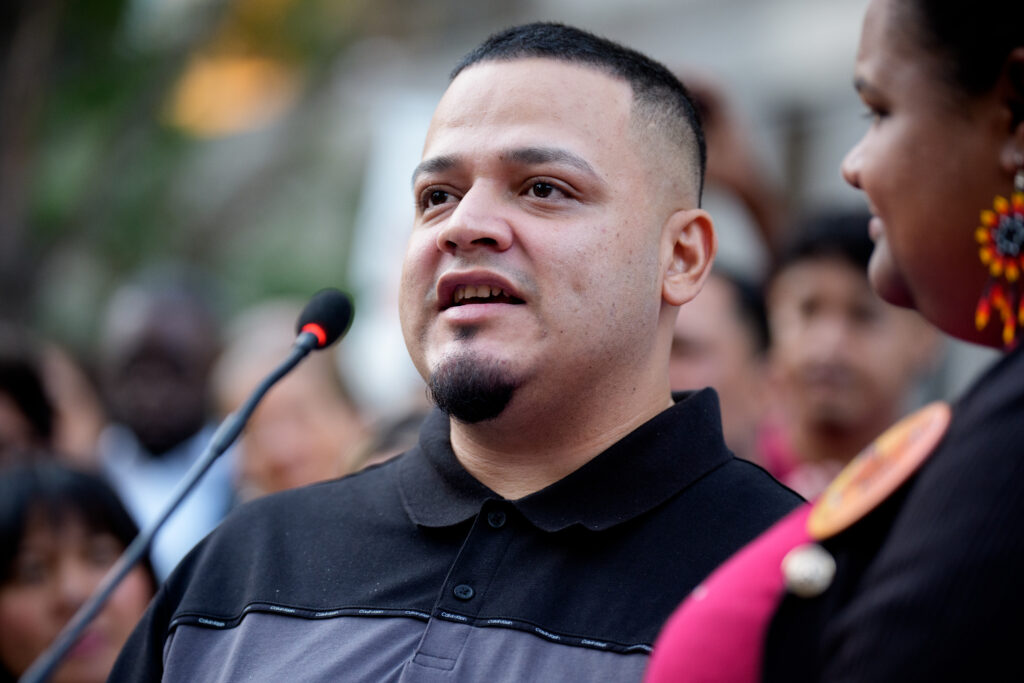Judge Says DOJ May Be Vindictively Punishing Abrego Garcia for Challenging Removal to El Salvador

A federal judge in Nashville ruled that the Department of Justice’s criminal case against Maryland man Kilmar Abrego Garcia may be a form of punishment against him for legally challenging his abrupt removal to an El Salvador megaprison earlier this year.
U.S. District Judge Waverly Crenshaw found that comments from senior Department of Justice (DOJ) officials, including Attorney General Pam Bondi, raised a “realistic likelihood” that the department sought immigrant smuggling charges against Abrego Garcia for vindictive reasons.
Get updates straight to your inbox — for free
Join over 350,000 readers who rely on our daily and weekly newsletters for the latest in voting, elections and democracy.
The judge said Abrego Garcia was entitled to discovery against the Trump administration and a hearing in which he can present evidence on why his case should be tossed for vindictive and selective prosecution.
Crenshaw found that the Trump administration’s decision to return Abrego Garcia from El Salvador in June to charge him with a two-count indictment could be interpreted as vindictiveness when considered alongside extrajudicial comments from senior law enforcement officials.
“The Court holds that the totality of events creates a sufficient evidentiary basis to conclude that there is a ‘realistic likelihood of vindictiveness’ that entitles Abrego to discovery and requires an evidentiary hearing before the Court decides his motion,” Crenshaw wrote, quoting a previous case that set a standard for determining if a prosecutor’s actions were vindictive.
Abrego Garcia was imprisoned in El Salvador for over two months after being removed from the U.S. through an “administrative error” by the Trump administration.
The Trump administration refused to obey a court order requiring it to “facilitate” Abrego Garcia’s return — an order that was affirmed both by the Fourth Circuit Court of Appeals and the Supreme Court.
In August, Abrego Garcia’s lawyers asked Crenshaw to dismiss the criminal charges, alleging that the Trump administration was punishing him for challenging his removal through a federal civil lawsuit in Maryland.
Crenshaw listed several actions that could be interpreted as evidence of vindictive prosecution.
“Most tellingly,” the judge wrote, was Deputy Attorney General Todd Blache’s decision to link Abrego Garcia’s criminal charges to his civil lawsuit in Maryland.
Blache in a Fox News interview in June said the government started investigating Abrego Garcia after “a judge in Maryland” questioned the government’s decision to remove him to El Salvdor and found that it “had no right” to do so.
“What should we do, as the Department of Justice, when a judge is accusing us of doing something wrong? We have an obligation to everyone, including you, to investigate it,” Blanche said. “And that’s exactly what we did.”
“Deputy Attorney General Blanche’s remarkable statements could directly establish that the motivations for Abrego’s criminal charges stem from his exercise of his constitutional and statutory rights to bring suit against the Executive Official Defendants, rather than a genuine desire to prosecute him for alleged criminal misconduct,” Crenshaw said.
Crenshaw said several comments from Bondi, Homeland Security Secretary Kristi Noem and other executive branch officials the day of Abrego Garcia’s return were also concerning.
“For instance, Secretary Noem posted on her X account on the day of Abrego’s arrest that he is ‘a known MS-13 gang member, human trafficker, and serial domestic abuser,’” the judge wrote.
“The potential unreasonableness of the prosecution is reflected in the timing of the Government’s conduct in March and April 2025,” Crenshaw said. “This is sufficient to conclude that Abrego has made a prima facie showing of ‘some evidence; that there is a realistic likelihood that the prosecution against him may be vindictive.”
After returning in June, Abrego Garcia was held in criminal custody in Tennessee for several weeks as his lawyers, the government and the courts deliberated over what would happen to him if he was released pending trial.
Abrego Garcia was eventually released in August but was immediately ordered to report to an Immigration and Customs Enforcement facility in Baltimore, Maryland, to again face removal.
Despite the criminal indictment against him, the Trump administration has sought to deport Abrego Garcia to Uganda. Late last month, he was transferred from Virginia to a Pennsylvania detention center.